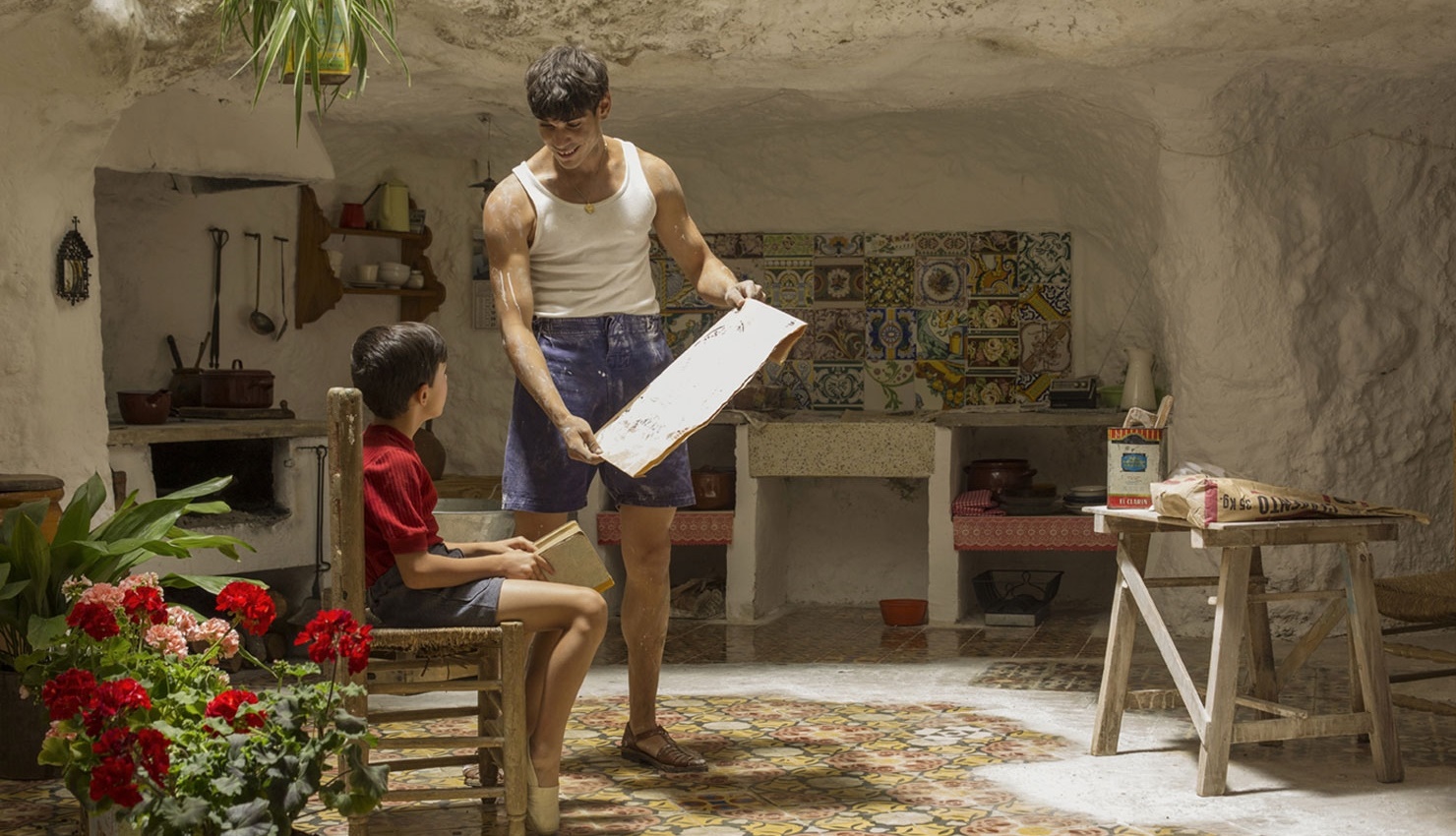
Pain and Glory
Dustin Chase
Academy Award winning filmmaker Pedro Almodóvar has a divisive range of films that include an Oscar-nominated performance from Penelope Cruz in “Volver”, to airplane orgies in “I’m So Excited“. His latest “Pain and Glory” premiered at Cannes earlier this year to rave reviews and awards buzz, especially for frequent collaborator Antonio Banderas. Almodóvar turns the focus inward with this film, projecting his own story onto the screen. Almodóvar lays himself bare in a soulful way for the viewer to analyze. Dots are slowly connected as the story explores the origins of some of his behavioral and artistic eccentricities. Like most of his films, “Pain and Glory” is stirringly beautiful, even as the narrative teeters back and forth in the first half. Ultimately the pieces of the story begin to fit together and the back-half of “Pain and Glory” allows the viewer a comprehensive picture that only comes together at the last second.
At the middle age of his life, Salvador Mallo (Banderas) finds himself in a state of chronic physical pain and creative emptiness. A renowned filmmaker and artist who rose up from the most humble of beginnings, he now spends his days thinking on his childhood, his mother (Cruz), and others who shaped his path in ways that only now are coming into focus. He suffers a cruel irony in that the love of his life was lost to him over heroin use, the same drug he now seeks solace in. Only when one of his most famous films is restored and he reconciles a broken friendship, does his stalled life begin to move again. A domino effect offers Salvador, opportunity, forgiveness and a chance to regain his artistic integrity, which serves as his life source.
The more personal 'Pain and Glory' gets, the more powerful it becomes for the viewer.
The more personal “Pain and Glory” gets, the more powerful it becomes for the viewer. Cruz’s performance, contained in flashbacks, is vivid and resounding when viewed in the greater context. The whitewashed caves where young Salvador (Flores) lives with parents provide striking imagery for the viewer. Whether ingenious art design or praise worthy location scouting, it’s a humbling location that comes to symbolize the entire film. Almodóvar’s noteworthy transitions in the first half of the film will remind viewers of his cleverness in the editing room, but the technicality of “Pain and Glory” soon gives way to a more emotional influence. It’s the pain of never being the son his mother wanted that haunts Salvador (Almodóvar). The glory of finding a path to work through the psychological impediment and the catharsis that comes when he learns to transform that pain into art.
One of the many themes Almodóvar explores here is how films can have one effect at one age, and over time, a completely different effect at another stage in life. “It’s your eyes that have changed, not the film,” one of his actresses says to him. Almodóvar might be telling a version of his own personal struggles, yet this script finds something many will be able to identify with. Banderas has been acting for over 35 years, though it took him until Robert Rodriguez’s 1995 action flick “Desperado” to break out internationally. He was then typecast as the Latin action hero or love interest, but through his work with Almodóvar his performances have revealed a performer who still has much to offer. The 59-year-old has never been nominated for an Oscar, which could change with this complex performance, easily a career best.
Final Thought
When he’s good, he’s really good! Almodóvar’s most personal is also one of his most profound.
